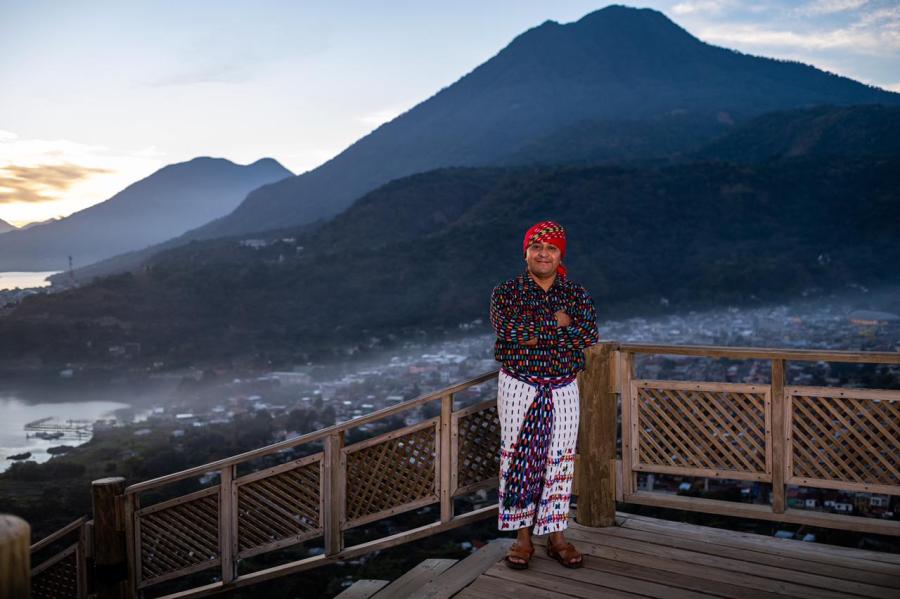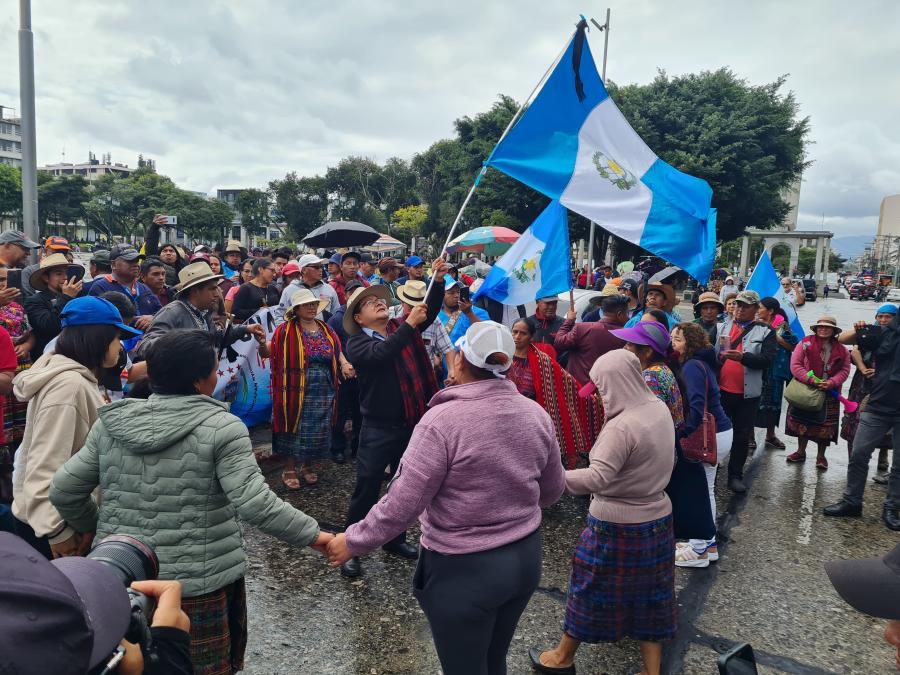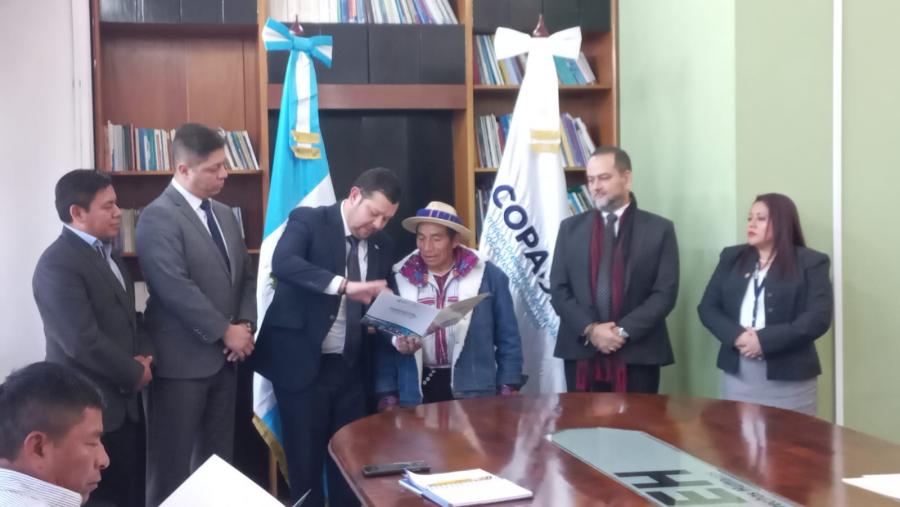
On February 26th, 2015, three community leaders who oppose the building of a hydroelectric dam in Santa Cruz Barillas, Guatemala, were arrested under what community members insist are false charges.
Members of the Q’anjobal Maya community in the Northern Region of Huehuetenango have been repeatedly harassed in recent years by a transnational company looking to develop dams projects without the free, prior and informed consent of local communities, Ecoener Hydro Santa Cruz, a subsidiary of Hidralia Energy in Spain, has conspired to bring charges against these three men since January of 2014. Justification for their arrest was on the accusations that they had been involved in kidnapping, coercion and threats against the government, and for illicit association. Community groups, along with the Confederated Ancestral Government of the Akateko, Chuj, Popti and Q’anjob’al Maya Nation, affirm that these arrests were carried out strategically in order to silence protests and organizing against the dam.
The community of Santa Cruz Barillas has been in the middle of a long and strenuous battle to keep the Spanish hydroelectric company from building a series of dams on a sacred river running through their villages. These dams would disrupt the daily lives of the people and pose great threat to the already fragile natural environment. Guatemalan authorities have frequently caved to pressure from the company Hydro Santa Cruz to remove community members active in organizing against the plans for the dam development, leading to over a dozen community activists being jailed in Barillas since 2010, a fact which was condemned by the UN High Commission for Human Rights during her visit to Guatemala 2013. Later that year national headlines were made when activist Ruben Herrera was released after two months in jail on false charges of terrorism, when the court found no evidence against him. Not coincidentally, the judge that signed the arrest warrant for Ruben Herrera is the same local judge that has now issued the arrest for these three community leaders.
When Herrera was released, activist organizations hoped that the High Criminal Court’s dismissal of the charges would set a precedent for human rights defenders in Guatemala. Judge Miguel Ángel Gálvez, in his dismissal, emphasized the importance of respecting the rights of Indigenous Peoples and respecting International human rights law. He sustained that Convention 169 of the International Labor Organization, which establishes the right to consultation before development projects, is valid as law in Guatemala and that it is the State of Guatemala’s failure to comply with these international obligations which creates the type of social conflict that has developed in Santa Cruz Barillas.
The community, which is a majority Q’anjobal Maya, has twice held referenda and voted in overwhelming majority against the exploitation of its natural resources by transnational companies. Despite this, Hydro Santa Cruz is continuing plans to build the dams.
In 2013, the community of Santa Cruz Barillas formed a peaceful resistance group called “Nuevo Amanecer”(New Dawn) with the main objective to peacefully block the dirt road that leads to the site where Hydro Santa Cruz wants to build the dam.
The three community members arrested, Fransisco Juan Pedro, Sotero Adalberto Villatoro Hernandez, and Arturo Pablo Juan, were founding members of Nuevo Amanecer and have been active, positive members of their communities.
Francisco has been an active member in community development projects and a candidate for the municipal government. Villatoro Hernandez is a local businessman, member of the social ministry of the church and a key player in processes to protect Q’anjobal lands, and Arturo Pablo is a teacher in the community Recreo B, which borders the Q’am Balam river. He is a well-known community leader focusing on land rights as well as access to educational resources for children in the community’s schools. Their arrests, conducted for political reasons, have caused much unrest within the community of Santa Cruz Barillas. Christina Hernandez, a local activist whose father had also been jailed in 2013, said the community is devastated that these arrests continue to happen. “These men have wives and families who need them, and are anxious to see their release. Their families, along with the rest of the community, are dedicated to fighting as long as necessary to demand their release.” Protest took place in Barillas and in the departmental capital of Huehuetenango all last week. The community, one of the poorest in Guatemala, collected donations from thousands of residents to gather the money needed to secure their good treatment while in jail, but instead the detainees have been transferred to a high-security prison in Guatemala City, a 12-hour bus ride from their families making the visiting them financially inaccessible.
Cultural Survival stands with the Q’anjobal community in demanding the release of the three men, and that Guatemalan courts adhere to the UN Declaration on the Rights of Indigenous Peoples, the UN Declaration on Human Rights Defenders, Convention 169 of the International Labor Organization, and numerous other documents that establish Indigenous Peoples right to their land, the right to defend their land, right to self-determination, and the right to peacefully assemble.
The community has made the following demands:
Immediate freedom for our brothers who were detained illegally
An investigation into the judge who gave this falsely issued this arrest warrant
Respect for our Community Referendum
Respect for our right to self-determination as Indigenous Peoples
The removal of translational companies from our country.



